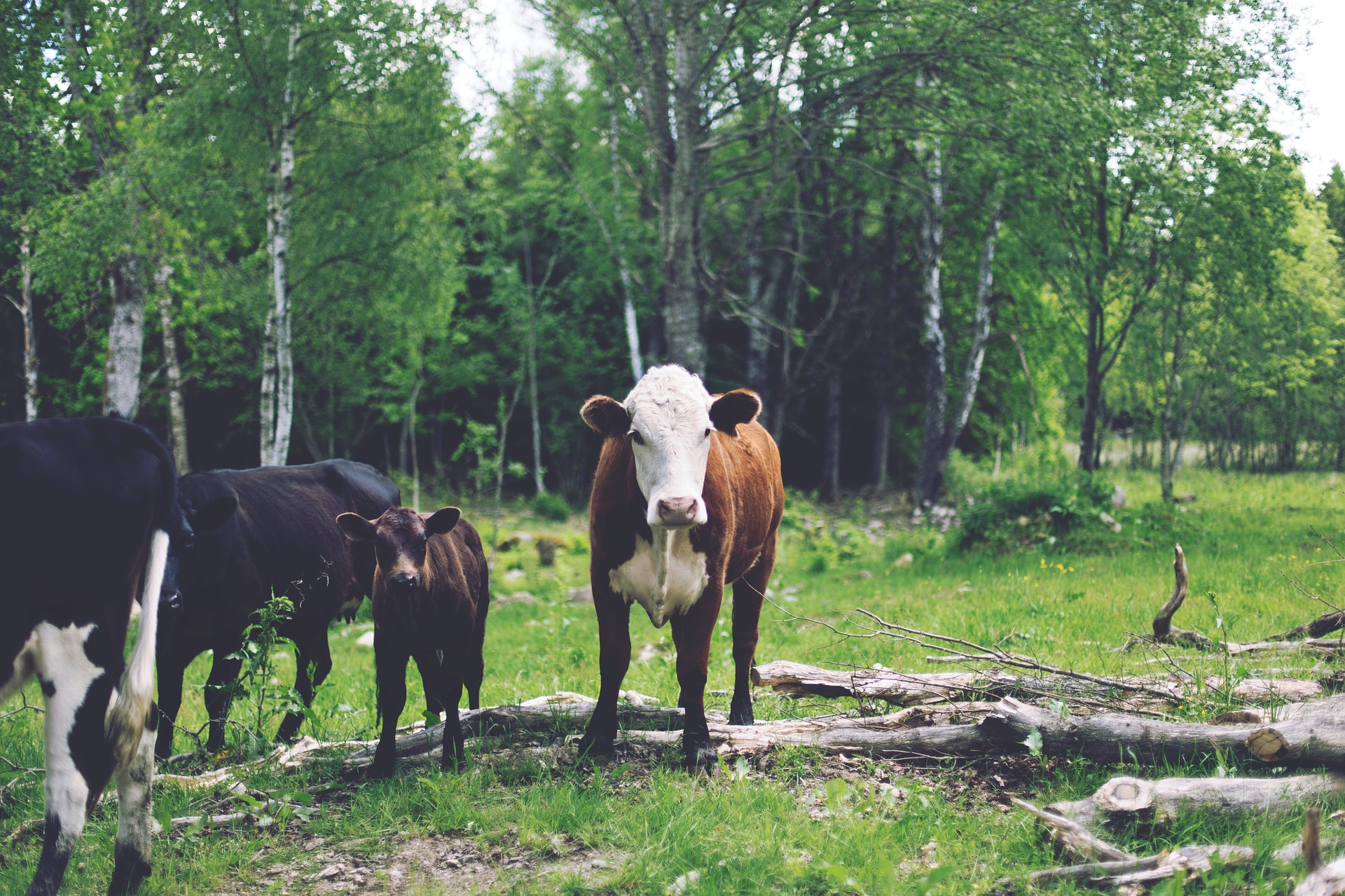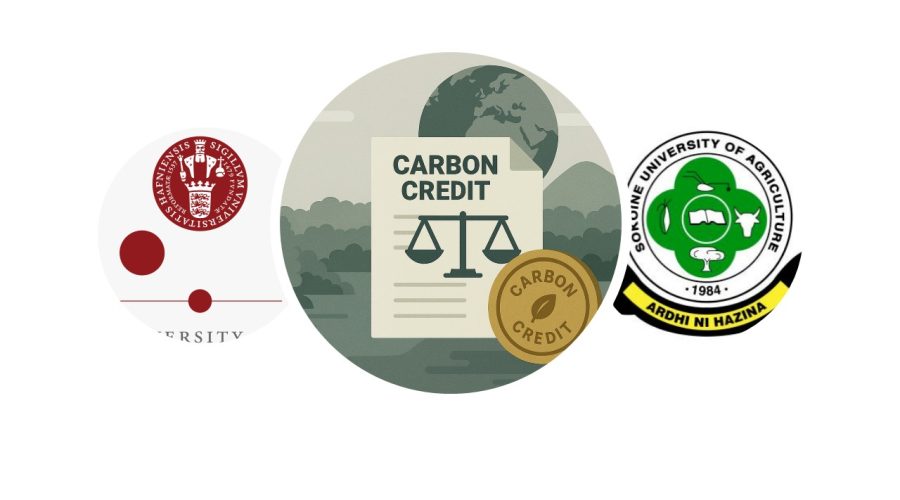Project background
LIVEFOR Project aims to enhance understanding of the extent to which inclusion of livestock keeping in Village Land Forest Reserves (VLFRs) could reduce conflicts between Pastoralists and Agro-Pastoralists (PAPs) and farming communities in Tanzania while improving their well-being. The project is implemented by Sokoine University of Agriculture (SUA), the Mwalimu Nyerere Memorial Academy (Tanzania) in collaboration with the University of Copenhagen (UoC) Denmark. Specific objectives are to: (i) examine how dominant narratives within Tanzania about livestock and forestry are reproduced and how they compare to state-of-the-art scientific knowledge; (ii) document and understand the process as well as social consequences of including livestock in the governance of VLFRs; (iii) quantify and model the biophysical and production economic consequences of integrating translocated livestock in the governance of VLFRs; (iv) enhance the research and teaching capacity of the College of Forestry, Wildlife and Tourism (CFWT), SUA and Department of Social Studies (DSS), Mwalimu Nyerere Memorial Academy, and Department of Food and Resource Economics (IFRO), UoC; and (v) disseminate and discuss project findings with pastrolists and agro-pastoralist (PAPs) and village representatives, local and national elected members, local and central government representatives as well as international communities. The objectives are achieved by training of three PhD students and one Postdoc candidate under three research work packages: (i) the political ecology of pastoralism and forestry in Tanzania; (ii) the de facto governance of VLFRs which include PAPs; and, (iii) implications of PAP integration on VLFRs’ ecology and production economics.
Project Progress Report
Recruitment of PhD students
The process of recruiting PhD students involved: development of the call for application for the PhD scholarship positions for three work packages, advertisement of scholarships on 16 February 2020 and the deadline was March 15th 2020, 35 applications were received; summarized and evaluated using the formulated shortlisting criteria, 8 reviewers were involved in shortlisting process out of which three were from CoU and five from SUA. Three applicants in Work Package 1 and 2 respectively and 4 applicants in Work Package 3 were shortlisted and invited to improve their proposal in accordance to the comments raised by the reviewers and attend interview which was conducted on 3rd and 4th June 2020. Following the interview performance, Benezet Rwelengera (Male), Edith Benedict (Female) and Raymond Okick (Male) were awarded the LIVEFOR Scholarship for WP1, 2 and 3 respectively.
PhD students and Postdoc candidate applied for admission at SUA through the College of Forestry, Wildlife and Tourism in the Directorate of Postgraduate Studies, Research, Technology Transfer and Consultancy. Post-doc candidate was admitted on 3rd April 2020 and registered on 14th June 2020 and the PhD students were admitted on 30th July 2020 and registered on 10th August 2020. Following registration, on 28th August 2020 the PhD students and Vice-Chancellor at SUA signed a Letter of Sub-Grant Agreement which stipulated budget and responsibilities of SUA (the LIVEFOR project) and the student. For the Post-doc student, the Letter of Agreement between MNMA and SUA was signed on 21st August 2020. The sub-agreement stipulates the budget and responsibilities of SUA and MNMA. In addition, through the LIVEFOR project, office number 29 fitted with furniture (a working space for students) located in the College of Forestry, Wildlife and Tourism (CFWT) building at SUA Main Campus while at SUA was secured.
Field scouting
As promised in the LIVEFOR project proposal, field scouting aimed to: build shared knowledge and learn together between researchers, supervisors, a Post-doc candidate and PhD students; collect information for a detailed description of the study areas (such as history of establishment of VLFRs, livestock translocation in connection with PAP and socio-economic profiles; provide detailed information to justify the recommend or selected areas for WP1, WP2 and WP3; as well as cross cutting issues related to the project; collect additional relevant literature from the regions and districts; provide an opportunity for PhD students to identify their research topics, hypotheses and methodologies, secure research permits, and make contacts in the regions, districts, villages and NGOs and local agreements. The project team (Jumanne M. Abdallah (Project Coordinator), Prof Romanus C. Ishengoma (Researcher), Dr Rose Kicheleri (Researcher), Dr Parit Saruni (Post-doc candidate), Benezet Rwelengera (PhD student, WP1), Edith Benedict (PhD student, WP2), and Raymond Okick (PhD student, WP3) conducted field scouting from 9th to 20th October 2020 in five regions in Tanzania namely Kigoma, Katavi, Ruvuma, Manyara and Arusha. Seven villages were visited as follows: Chakulu, Mwamila and Mgambazi villages in Uvinza district Kigoma region; Vikonge and Mpembe in Tanganyika district Katavi region; Ngadinda in Madaba District Council Ruvuma region; Sunya in Kiteto district Manyara region; and Moduli district in Arusha region. Following this fiend visits and analysis of the information and data obtained in the field the following research sites are recommended for LIVEFOR Project: SULEDO villages in Kiteto District; Chakulu village in Uvinza District and Vikonge village in Tanganyika District. Pastoral villages in SULEDO are suitable for work package 2 and 3, while agro-pastoral villages of Chakulu in Uvinza District and Vikonge in Tanganyika District are suitable sites for WP 1,2 and 3.
Research
The PhD students have developed their research proposals:
- Benezet Rwelengera: Interrogating the Production and Circulation of Pastoralism-Forestry Knowledge in Tanzania.
- Edith Benedict: ‘Institutionalising Pastoralism in Community Based Forest Management in Tanzania’
- Raymond Okick: Impacts of Pastoralists and Agro-Pastoralists Integration on Forests’ Productivity and Economic Value: The case of SULEDO Village Land Forest Reserve in Kiteto District, Tanzania
- Dr Parit Saruni: Village Land Forest Reserves in Kiteto, Tanganyika and Uvinza Districts in Tanzaniaꓽ Gender and Human Right Analysis
 Benezet Mugisha Rwelengera is an Assistant Lecturer of Human Geography at the University of Dar es Salaam, Tanzania. He is a PhD student at Sokoine University of Agriculture (SUA) and Copenhagen University aspiring to build expertise on the political ecology of conservation and geographies of evasion and development. His PhD study is titled: Interrogating the Production and Circulation of Pastoralism-Forestry Knowledge in Tanzania. Long lasting debates exist on the (adverse) effects of pastoral inclusion in forests across the world, and in Tanzania in particular. Literature is rife with diverse and conflicting positions regarding grazing in forests. Narratives and discourses generally, advance stereotypes and beliefs that pastoralism is backward and unfriendly to conservation. These narratives – equally advanced too by scientific forestry, the media and education – further reinforce the need to exclude pastoralists from grazing in forests. Nonetheless, studies abound that show neutral or positive correlation between grazing and forests sustainability. This study, with a focus on Tanzania, specifically seeks to examine the scientific evidence basis for the pastoralism-forestry incompatibility logic upheld; to analyse the media framing of pastoralist-forest relations; and lastly to examine the role of education in advancing the pastoralism-forestry incompatibility logic. This study is funded by DANIDA through LIVEFOR Project coordinated at SUA (Tanzania) in collaboration with Copenhagen University (Denmark) and Mwalimu Nyerere Memorial Academy (Tanzania).
Benezet Mugisha Rwelengera is an Assistant Lecturer of Human Geography at the University of Dar es Salaam, Tanzania. He is a PhD student at Sokoine University of Agriculture (SUA) and Copenhagen University aspiring to build expertise on the political ecology of conservation and geographies of evasion and development. His PhD study is titled: Interrogating the Production and Circulation of Pastoralism-Forestry Knowledge in Tanzania. Long lasting debates exist on the (adverse) effects of pastoral inclusion in forests across the world, and in Tanzania in particular. Literature is rife with diverse and conflicting positions regarding grazing in forests. Narratives and discourses generally, advance stereotypes and beliefs that pastoralism is backward and unfriendly to conservation. These narratives – equally advanced too by scientific forestry, the media and education – further reinforce the need to exclude pastoralists from grazing in forests. Nonetheless, studies abound that show neutral or positive correlation between grazing and forests sustainability. This study, with a focus on Tanzania, specifically seeks to examine the scientific evidence basis for the pastoralism-forestry incompatibility logic upheld; to analyse the media framing of pastoralist-forest relations; and lastly to examine the role of education in advancing the pastoralism-forestry incompatibility logic. This study is funded by DANIDA through LIVEFOR Project coordinated at SUA (Tanzania) in collaboration with Copenhagen University (Denmark) and Mwalimu Nyerere Memorial Academy (Tanzania).
 Edith Benedict is an Assistant Lecturer of Human Geography at the University of Dar es Salaam. She is currently pursuing her PhD studies at the Sokoine University of Agriculture (SUA) and the University of Copenhagen (UCPH). Her research is entitled ‘Institutionalising Pastoralism in Community Based Forest Management in Tanzania’
Edith Benedict is an Assistant Lecturer of Human Geography at the University of Dar es Salaam. She is currently pursuing her PhD studies at the Sokoine University of Agriculture (SUA) and the University of Copenhagen (UCPH). Her research is entitled ‘Institutionalising Pastoralism in Community Based Forest Management in Tanzania’
For decades in Tanzania, pastoralists and agropastoralists (PAPs) have been forced to leave their traditional grazing areas for many reasons including to create/expand state conservation space, such as national parks and forest reserves and in search of greener pastures. As a result, some PAPs have been forced to seek alternative livelihoods while others have settled in and use village land forest reserves (VLFRs) for pastures. VLFRs as a form of decentralised forest management have the potential to include PAPs as co-appropriators under mutual benefits and institutional arrangements, thus securing an equitable share of costs and benefits. However, VLFRs fall under the jurisdiction of the political and administrative village governments, hence the chances of increasing conflicts between PAPs and communities; yet excluding PAPs as newcomers from the village land. Therefore, the fact that PAPs can gain or lose access to the VLFRs requires more research. The overarching objective of the research is to examine processes through which PAPs are institutionalised in VLFRs in Tanzania, and the socio-economic and political consequences to farming communities and PAPs. Specifically, the research aims to: i) examine the history of CBFM and territorial processes through which PAPs access the new conservation-commons that VLFRs represent (ii) examine institutional process of including PAPs in the new forest conservation space (iii) analyse the distribution of costs and benefits at community and household levels of including PAPs in the use, management, and governance of VLFR and (iv) assess gender implications of including PAPs in the use, management, and governance of VLFRs. Edith is supervised by Prof. Jumanne M. Abdallah (SUA), Prof. Thorsten Treue (UCPH) and Dr. Rose Kicheleri (SUA). Her study is funded by DANIDA through LIVEFOR Project coordinated at SUA (Tanzania) in collaboration with Copenhagen University (Denmark) and Mwalimu Nyerere Memorial Academy (Tanzania).
 Okick, Raymond is employed by Tanzania Wildlife Research Institute (TAWIRI) as Researcher. Currently, he is registered as a PhD student both at Sokoine University of Agriculture, Tanzania and Copenhagen University, Denmark. His PhD titled: ‘Impacts of Pastoralists and Agro-Pastoralists Integration on Forests’ Productivity and Economic Value: The case of SULEDO Village Land Forest Reserve in Kiteto District, Tanzania’. Pastoralism and Agro-pastoralism are traditional livestock production systems commonly practiced across the world. In Tanzania, such systems are mainly dominated by a free-ranging feeding system, whereby Pastoralists and Agro-pastoralists (PAPs) move around with their livestock in search of pastures and water resources. However, recently, PAPs have been migrating to other regions that had no pastoral systems before, but also, encroach state reserves and community forest reserves for grazing. Consequently, such movements have resulted in environmental changes and conflicts in the new destination areas. As such, this calls for further investigations, which include the possibilities of integrating PAPs in Village Land Forest Reserves (VLFRs). However, grazing is fundamentally associated with ecological disturbances that tend to have impacts on the productivity function of forest ecosystems. Recent studies have indicated two outcomes, whereby livestock grazing can either decrease or increase the productivity in species diversity, growth rate, and biomass production. Given the observed productivity dynamics that might be associated with differences in grazing systems, environmental factors, and historical formation of the forests, it is imperative to further evaluate the impacts of livestock grazing on the productivity of the forests in light of integrating PAPs in VLFRs. Therefore, this study aims to contribute to the understanding of the impact of grazing on forests’ productivity and the associated economic value using the case of SULEDO VLFR in Kiteto District, Tanzania. Specifically, the study aims to understand; (i) how does grazing affect the growth and diversity of vegetation? (ii) how does grazing affect the biomass production of forests? (iii) what are the human-derived ecosystem services generated from the forest and their economic values?, and (iv) what is likely to be the optimum grazing intensity with respect to forest and livestock production? This study is funded by DANIDA through LIVEFOR Project coordinated at SUA (Tanzania) in collaboration with Copenhagen University (Denmark) and Mwalimu Nyerere Memorial Academy (Tanzania). This study is supervised by; Prof. Romanus C. Ishengoma, Department of Forest Engineering and Wood Science, College of Forest, Wildlife and Tourism, Sokoine University of Agriculture, Tanzania and Prof. Henrik Meilby, Department of Food and Resource Economics, Faculty of Science, University of Copenhagen, Denmark.
Okick, Raymond is employed by Tanzania Wildlife Research Institute (TAWIRI) as Researcher. Currently, he is registered as a PhD student both at Sokoine University of Agriculture, Tanzania and Copenhagen University, Denmark. His PhD titled: ‘Impacts of Pastoralists and Agro-Pastoralists Integration on Forests’ Productivity and Economic Value: The case of SULEDO Village Land Forest Reserve in Kiteto District, Tanzania’. Pastoralism and Agro-pastoralism are traditional livestock production systems commonly practiced across the world. In Tanzania, such systems are mainly dominated by a free-ranging feeding system, whereby Pastoralists and Agro-pastoralists (PAPs) move around with their livestock in search of pastures and water resources. However, recently, PAPs have been migrating to other regions that had no pastoral systems before, but also, encroach state reserves and community forest reserves for grazing. Consequently, such movements have resulted in environmental changes and conflicts in the new destination areas. As such, this calls for further investigations, which include the possibilities of integrating PAPs in Village Land Forest Reserves (VLFRs). However, grazing is fundamentally associated with ecological disturbances that tend to have impacts on the productivity function of forest ecosystems. Recent studies have indicated two outcomes, whereby livestock grazing can either decrease or increase the productivity in species diversity, growth rate, and biomass production. Given the observed productivity dynamics that might be associated with differences in grazing systems, environmental factors, and historical formation of the forests, it is imperative to further evaluate the impacts of livestock grazing on the productivity of the forests in light of integrating PAPs in VLFRs. Therefore, this study aims to contribute to the understanding of the impact of grazing on forests’ productivity and the associated economic value using the case of SULEDO VLFR in Kiteto District, Tanzania. Specifically, the study aims to understand; (i) how does grazing affect the growth and diversity of vegetation? (ii) how does grazing affect the biomass production of forests? (iii) what are the human-derived ecosystem services generated from the forest and their economic values?, and (iv) what is likely to be the optimum grazing intensity with respect to forest and livestock production? This study is funded by DANIDA through LIVEFOR Project coordinated at SUA (Tanzania) in collaboration with Copenhagen University (Denmark) and Mwalimu Nyerere Memorial Academy (Tanzania). This study is supervised by; Prof. Romanus C. Ishengoma, Department of Forest Engineering and Wood Science, College of Forest, Wildlife and Tourism, Sokoine University of Agriculture, Tanzania and Prof. Henrik Meilby, Department of Food and Resource Economics, Faculty of Science, University of Copenhagen, Denmark.
Dr Parit Saruni
Village Land Forest Reserves in Kiteto, Tanganyika and Uvinza Districts in Tanzaniaꓽ Gender and Human Right Analysis
Studies on PAP-farmers’ conflicts are well documented in Tanzania. Conversely, empirical data on PAP’s translocation and inclusion in village land forest reserves (VLFRs) and how this contributes to reduction of conflicts and improved well-being of PAP communities is rather missing. Our study will be based on the hypothesis that PAPs inclusion in VLFR governance leads to conflict or mutually beneficial collaboration depending on the existing institutional arrangements, inclusion processes and benefits derived from access to VLFRs. In turn this will affect the wellbeing and livelihoods of social groups through peace building, better forest governance and economic sustainability. We seek to contribute to scholarly literature on the impact of PAPs translocation and inclusion in VLFRs from a gender and human right perspective in Tanzania. Specifically we will analyse the nature of PAP-farmers conflicts as well as non-conflictual interactions on VLFRs based-livelihoods and their impacts on the PAP’s-farmers well-being; investigate the biophysical effects of PAPs access to VLFRs; determine on the extent to which different stakeholders’ concerns over the biophysical sustainability of including livestock grazing in the use of VLFRs has affected the governance of the VLFRs; analyze the institutional arrangements of including PAPs in VLFRs and, analyze the role of PAP’s women in forest and livestock governance in the study sites. The study is relevant to both national and international goals. Therefore, findings from this study will help PAPs and farmers, forest and livestock experts in developing grazing and forest conservation strategies that will ensure sustainable use of forest. Also, the information will help policymakers, community based organizations, non-governmental organizations, human rights groups and other stakeholders in agriculture, forest and livestock sectors to develop suitable and relevant policies that will improve governance of forest and livestock production in Tanzania.




